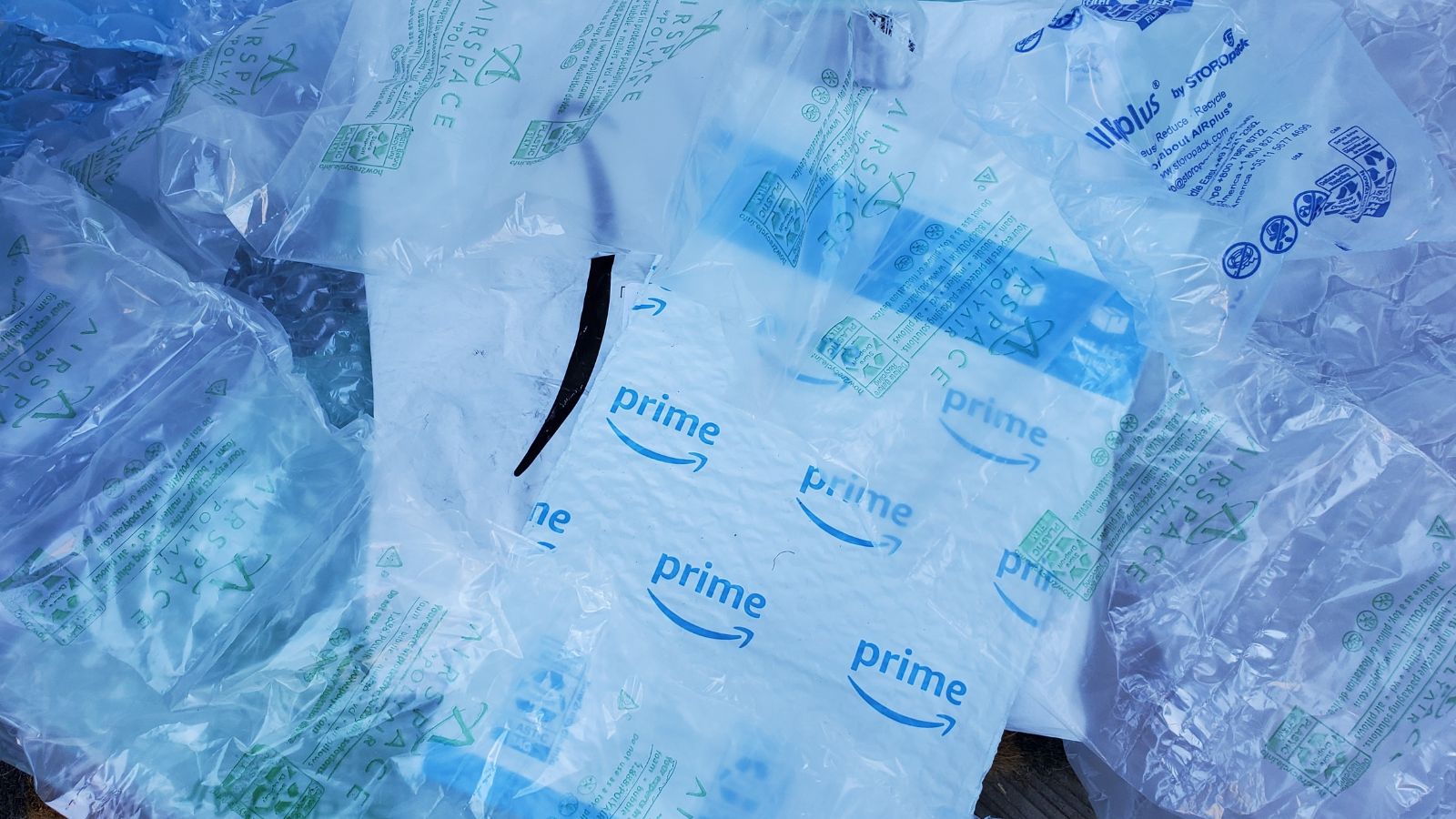
Turning plastic waste into plastic lumber isn’t recycling
Most of Amazon’s plastic packaging isn’t being recycled, and some might end up as material for plastic decking instead.
Nearly all of America’s trash could be composted and recycled. But we’ve got a lot of work to do to get there.
Most of us put our recyclables out for collection. But it’s going to take more than individual action to deal with our trash problem. Only 24% of our trash actually gets recycled, and only 9% gets composted. We can do better. Together we can share information, resources and push our leaders to build a better recycling and composting system.
Most of Amazon’s plastic packaging isn’t being recycled, and some might end up as material for plastic decking instead.
Here are 10 examples of how our advocates won positive results for the public and the planet in 2023.
Shoppers can score some great deals on Amazon Prime Day or Prime Big Deal Days, but they come at a cost: tons and tons of single-use plastic packaging waste added to our environment.
Plastic is an environmentally harmful material in every stage of its life cycle. It is produced from oil through a chemical process and after generally a single use, it pollutes the environment for centuries. If it’s not recovered and recycled, it releases toxic chemicals into the ground and water. And because it’s not biodegradable, it will continue to do so indefinitely. Even worse, it harms wildlife when it ends up in their stomachs or when it contaminates their surrounding food source. It’s clear that plastic pollution is dangerous, so why do we use so much of it?
Have you ever thought about where clothing goes after you’re done with it? Or the impact that it has on climate change?
Building on successful programs in dozens of countries and recent action taken by Maine and Oregon, Colorado Gov. Jared Polis signed on Friday a bipartisan producer responsibility bill on consumer packaging into law. Colorado has become the third state in the country to pass a producer responsibility law on consumer packaging.
